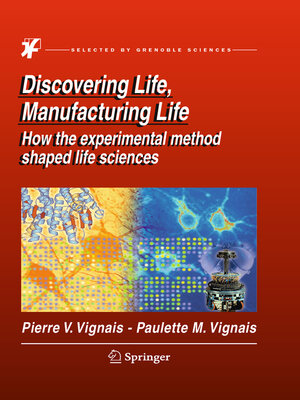Discovering Life, Manufacturing Life
ebook ∣ How the experimental method shaped life sciences
By Pierre V. Vignais

Sign up to save your library
With an OverDrive account, you can save your favorite libraries for at-a-glance information about availability. Find out more about OverDrive accounts.
Find this title in Libby, the library reading app by OverDrive.



Search for a digital library with this title
Title found at these libraries:
| Library Name | Distance |
|---|---|
| Loading... |
Francis BACON, in his Novum Organum, Robert BOYLE, in his Skeptical Chemist and René DESCARTES, in his Discourse on Method; all of these men were witnesses to the th scientific revolution, which, in the 17 century, began to awaken the western world from a long sleep. In each of these works, the author emphasizes the role of the experimental method in exploring the laws of Nature, that is to say, the way in which an experiment is designed, implemented according to tried and tested te- niques, and used as a basis for drawing conclusions that are based only on results, with their margins of error, taking into account contemporary traditions and prejudices. Two centuries later, Claude BERNARD, in his Introduction to the Study of Experimental Medicine, made a passionate plea for the application of the experimental method when studying the functions of living beings. Twenty-first century Biology, which has been fertilized by highly sophisticated techniques inherited from Physics and Chemistry, blessed with a constantly increasing expertise in the manipulation of the genome, initiated into the mysteries of information techn- ogy, and enriched with the ever-growing fund of basic knowledge, at times appears to have forgotten its roots.







